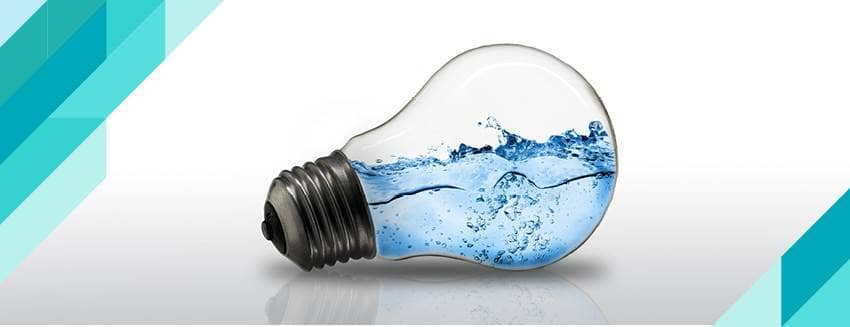
Turkish scientists have succeeded in generating electricity using cannabis metabolites. The study, carried out in cooperation with Üsküdar University and Istanbul Technical University, was published in the journal Bioresource Technology Reports.
Üsküdar University and Istanbul Technical University produced electricity from wastewater containing the products of the main active ingredient of cannabis.
Üsküdar University Rector Prof. Dr. Nevzat Tarhan, Faculty of Engineering and Natural Sciences, Department of Molecular Biology and Genetics Faculty Member Prof. Dr. Tunç Çatal, Department of Bioengineering Faculty Member Dr. Vildan Enisoğlu Atalay, Uzm. Selma Özilhan, Uzm. Prof. Dr. Murat Özdemir and Prof. Dr. Hakan Bermek from Istanbul Technical University wrote an article for the journal Bioresource Technology Reports, stating that they used a waste water that has not been used so far as an energy source in microbial fuel cells.
"THC is the main compound that gives a person intoxication"
Biofuel cells are bio-electrochemical devices that degrade biochemical compounds left unused in nature, which can sometimes be very harmful, and as an added value, they use specialized bacteria to generate low-power but continuous DC voltage. The molecule in question in this study, COOH-THC (aka 11-Nor-9-carboxy-THC), is the main product of the biodegradation of THC (delta9-tetrahydrocannabinol). THC is derived from the cannabis plant and is the main compound that gives a person "intoxication". THC, the active ingredient of Indian hemp, is metabolized into various small and mostly bio-active molecules through enzymatic reactions of cytochrome p450 in the liver. The main breakdown products include Δ9-THC, 11-OH-THC and 11 or 9 carboxy Δ9 tetrahydrocannabinol (COOH-THC). The latter is the primary glucuronide conjugate found in human urine.
"Urine of cannabis users is the cause of cannabis metabolites entering wastewater"
Stating that the main source of cannabis metabolites into wastewater is the urine of cannabis users, Prof. Dr. Tunç Çatal,
"But how does this happen? How is it possible to eliminate the potential damage to nature caused by the breakdown product (metabolite) and generate electricity at the same time?" According to a newly published scientific paper, in air-cathode microbial fuel cells (MFCs), not only is this substance broken down by bacteria along with urine, but electricity of up to 0.3 Volts is generated alongside it.
Here's how MFCs work: By breaking down carbon-based compounds, exoelectrogenic microorganisms are able to utilize electrons to generate electricity. These electrons are transported to a cathode and generate an electric current in the process. While these exoelectrogenic bacteria particularly prefer carbon-based substrates such as polysaccharides, they can also eliminate some very toxic or carcinogenic substances that you would never even guess."
This technique has been used successfully in many fields
This technique has been successfully applied to standard biomolecules such as all carbohydrate derivatives, ammonia, hydrocarbons, ethanol, propanol, ethylene glycol, glycerol, ringed and polyalcohols, formic acid, etc., as well as to all kinds of harmful industrial and domestic wastewater and even more recently to direct wastes such as urine. Both synthetic and real urine with COOH-THC were compared on the basis of electricity generation. Finally, Prof. Tunç Çatal and his collaborators have used substrates such as antibiotics or metabolites of recreational substances - cocaine, cannabinoids - which have the potential to be very harmful by entering the environment in human waste. In this latest study, the researchers were able to eliminate more than 62% of COOH-THC from the samples.
"It is possible to generate electricity using urine"
Regarding the study carried out in the Microbial Biotechnology laboratory of Istanbul Protein Research-Development and Innovation Center (PROMER), PROMER Director Prof. Çatal underlined that "It has been shown that it is possible to generate electricity using urine without any pretreatment, and with this study, cannabis metabolites, which cause damage to nature by mixing with urine, can be removed at a remarkable rate.
"Microbial fuel cells will be one of the indispensable technologies of the future"
Prof. Dr. Hakan Bermek, one of the participants of the study and one of the first people to introduce microbial fuel cells to Turkey, expressed his thoughts on the study as follows:
"Especially today's energy resources and the damage we have caused to the world based on their use have made it absolutely necessary to use new energy resources and technologies. The advantage of microbial fuel cells at this stage is that although the level of energy obtained is a little low as of now, it will definitely be one of the indispensable technologies of the future as it makes waste treatment possible with a highly compatible approach with nature. For this reason, we have been continuing our studies on MFC (microbial fuel cell) for more than 10 years, as seen in the example here."
Prof. Dr. Nevzat Tarhan, Rector of Üsküdar University, also made the following evaluations regarding the study:
"When computational chemistry and computational psychiatry are combined, the fight against addiction will be easier. Because the damage that substance users cause to themselves and nature will be measured and seen. Thus, our patients and relatives will be able to see the results of their work without having bad experiences, and the fight against addiction will become easier. It is fortunate for Turkey that these studies can be carried out in Üsküdar University Laboratories."
